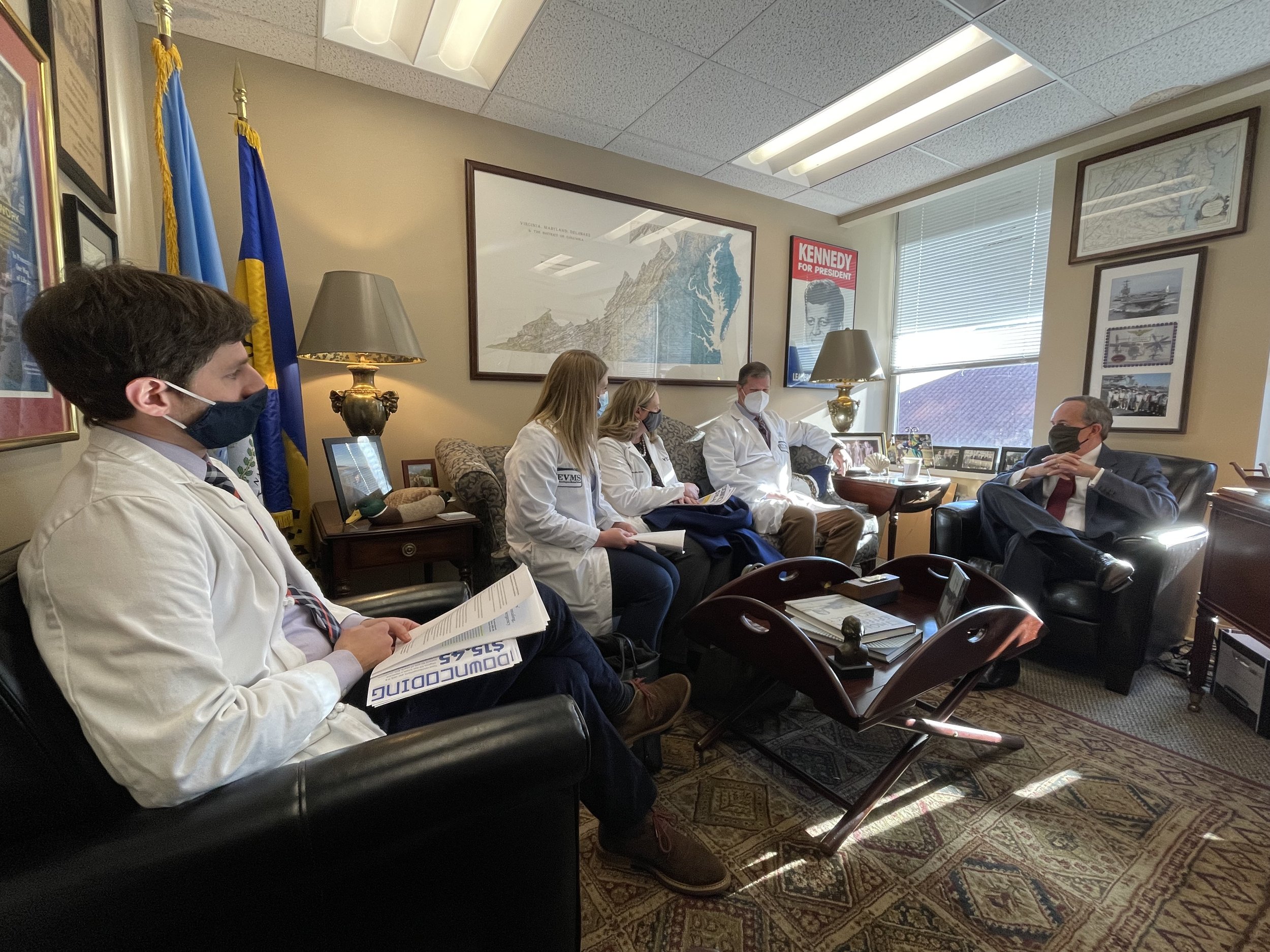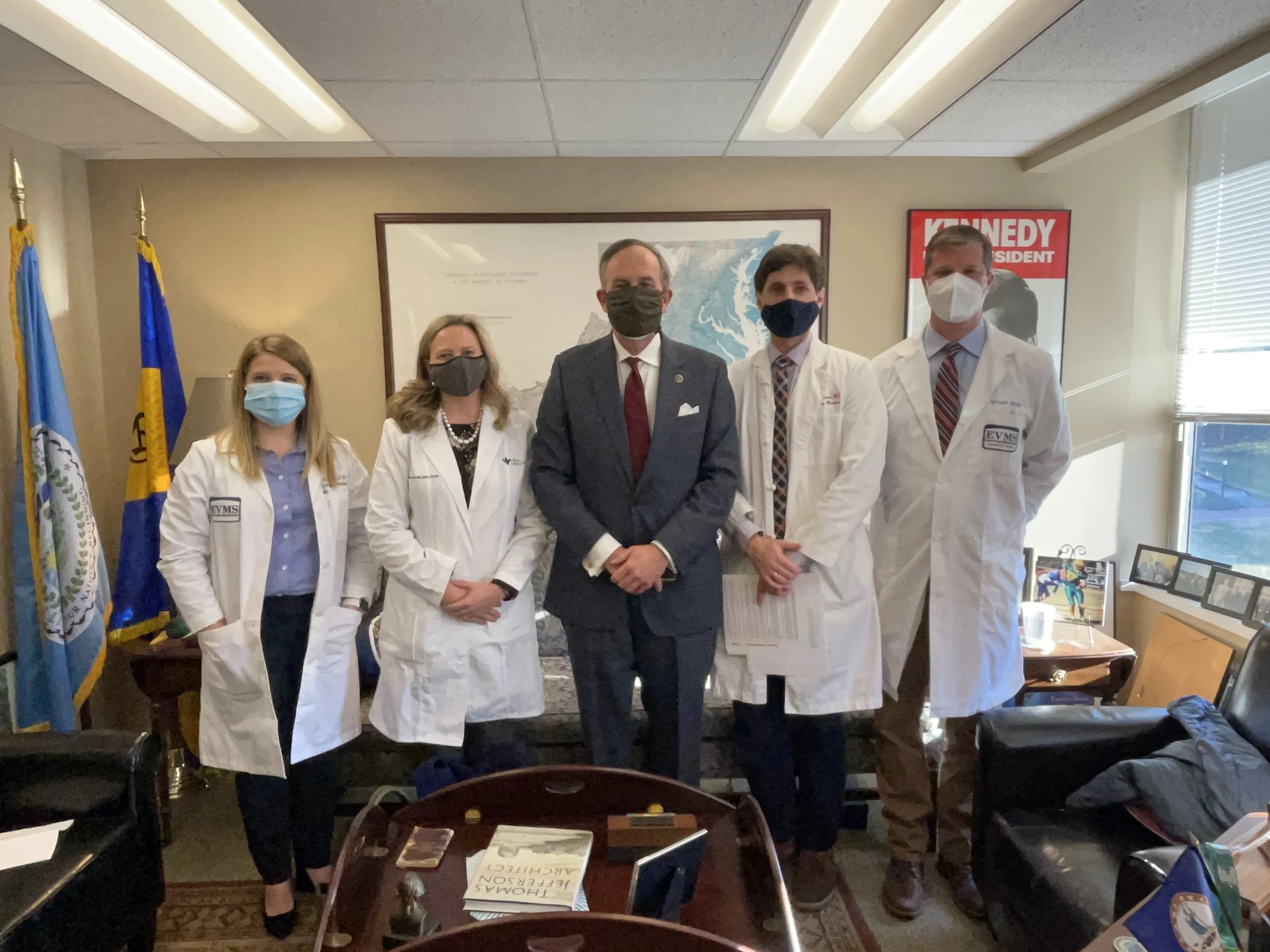An Update on State and Federal Fair Payments
Pushing for fair payment is far and away the top advocacy issue on VACEP’s agenda at any given time. Today, we have a few good updates to share — and on several issues that appeared to be a lost cause even as recently as a few weeks ago.
But these updates prove that advocacy, never quitting, and showing up with good information and respected minds leads to big results.
ENSURING A FAIR FIGHT: Out-of-network billing/contract arbitration (State and Federal)
THE LATEST: At the end of February, the Centers for Medicare & Medicaid Services reversed a decision it had made in 2021, and the result will be a fairer arbitration process when billing disputes emerge between insurers and providers as part of the federal No Surprises Act. The decision is the result of federal judge in Texas ruling in the Texas Medical Association, VACEP and our allies’ favor regarding the process for resolving reimbursement disputes.
BACKGROUND: The federal No Surprises Act created out-of-network arbitration guidelines that apply to federal ERISA insurance plans and any states that don't have their own legislation (as Virginia does). In 2020, VACEP led landmark state legislation, which became effective January 1, 2021, that protects patients from getting billed by an out-of-network health care provider for emergency services at a hospital.
As part of the Virginia legislation, there is an arbitration process for out-of-network contracts and disputes. This applies to state insurance plans; ERISA plans could opt in, and most have. Virginia patients are split about 60% ERISA and 40% commercial state plans.
While the arbitration process in the Federal law was reasonable, an “interim final rule” released in 2021 by the U.S. Departments of Health and Human Services, Labor, and Treasury created a system that drastically departed from the law and disproportionately favored insurance companies over physicians and hospitals. The Rule allows insurers to manipulate fair payment standards with little or no transparency on the health plan's calculation of 'median in-network' rates. This harms not just commercially insured patients, but the rural, medically vulnerable and indigent populations who rely on our nation's emergency departments as an important safety net.
As such, Virginia health plans immediately began suggesting that Virginia adopt the federal model, but did not pursue a legislative remedy this year. The latest decision by CMS protects emergency physicians by ensuring a fair arbitration process at the federal level that more closely mirrors the current Virginia model.
For more detail, see CMS’s Memorandum Regarding Continuing Surprise Billing Protections for Consumers
ENSURING FAIR PAY FOR MEDICAID VISITS: Virginia DMAS/Medicaid MCO Downcoding
Virginia emergency physicians during White Coats on Call in January, advocating for removal of the downcoding policy.
BACKGROUND: For the past two years, Virginia policy has automatically cut Medicaid reimbursements for emergency department visits that are on a list of 790 diagnoses to $15. This list was intended to help managed-care organizations (MCOs) identify patients who are visiting the ED so frequently that they need additional assistance getting connected to other providers, like primary care and behavioral health.
Instead, this list is being used to penalize emergency departments while doing nothing to aid patients with high ED utilization. VACEP has attempted to fix the issue through the 2022 General Assembly Session budget amendment, an August 2020 lawsuit, and CMS reviews.
THE LATEST: We’ve had two additional meetings with CMS, including one last week where we met with CMS’s Medicaid Managed Care division. Surprisingly, they were unaware of the Virginia Department of Medical Assistance Services (DMAS) policy in Virginia (MCOs are responsible for 96% of Virginians on Medicaid). In addition, the division agreed that MCOs cannot downcode based on final diagnosis and must code according to prudent layperson standards. We shared numerous downcoding examples from emergency departments statewide. CMS is planning to reach out to Virginia DMAS, and we are cautiously optimistic for a reversal of the policy.
In addition, in 2020 VACEP and our allies had filed suit against the Virginia Department of Medical Assistance Services (DMAS) in federal court, though the judge ruled he didn’t have jurisdiction over the case. We appealed, and this week received a very favorable ruling that remanded the case back to lower court, telling them to review the merits of our case.
TRULY REDUCING ER Utilization by Medicaid recipients
The whole reason the downcoding policy exists is the misguided belief that it will stem high ED utilization. But that makes no sense, as Medicaid recipients have no financial stake in their decisions of where to seek care.
VACEP and our partners at the Virginia Hospital and Healthcare Association have participated in a DMAS study to look at the root cause of Medicaid recipients seeking care in the ED inappropriately, and suggest systemic changes. A state committee with representatives from DMAS, the health plans, VHHA, VACEP, the Virginia Academy of Family Physicians, and Virginia Health Information met monthly over 18 months. We heard recommendations from several states, as well as private consulting groups, on ways to redirect Medicaid patients to less costly sources of care.
As expected, the overriding advice was for Virginia to improve access to care, health literacy, public health, primary care reimbursements, and other common solutions. Consultants said that paying hospitals and emergency physicians a reduced, downcoded fee has never been successful reducing ER visits in Medicaid recipients, as there is no cost share. Health plans tried to block this fact in the final report. But we were able to get it included in the study group’s "non-consensus recommendation.”
Give to the STAT Fund
Wins like we have experienced in the last few weeks — wins that ensure you are fairly paid for your talents and time — are only possible with financial support from members. Give to our Statewide Action Trust (the STAT Fund) and help us continue to fight against unfair policies that harm patient care and penalize emergency physicians.






